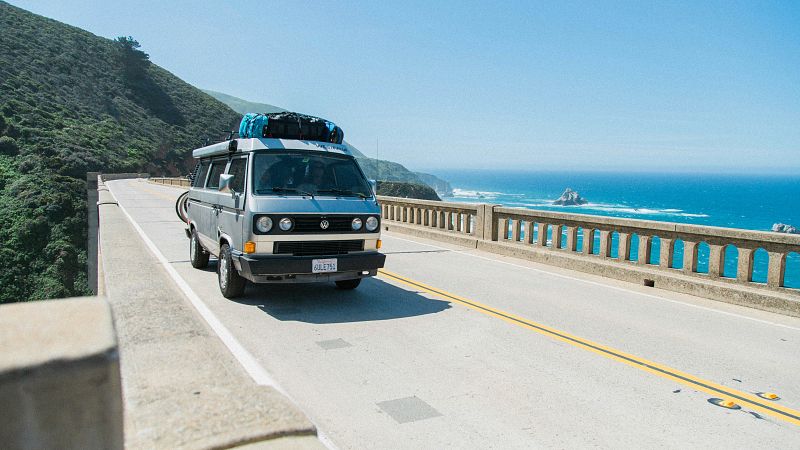
Despite the open borders of the Schengen Area, driving through Europe can be a complicated task due to the diverse national road regulations to be aware of.
If you're planning a road trip on the continent in 2025, be certain you are current with the most recent updates to regulations.
From the introduction of 30 additional low-emission zones in towns across France to stricter regulations on noise pollution in Switzerland, here are the new rules that you should be aware of.
The European Union cracks down on cross-border penalties.
Up until now, it's proven relatively straightforward for drivers traveling abroad to evade the repercussions of violating traffic laws in foreign Schengen Zone countries.
Drivers who break the law while abroad could face having their license revoked at home.
Offenses encompass driving while intoxicated, exceeding speed limits in both urban and rural zones, and causing an accident leading to serious injuries or fatalities.
Switzerland has introduced fines for avoidable noise pollution.
systems backfiring.
Fines for repeated offenders of noise regulations are becoming stricter. Motorists who idle their engines without a valid reason will now be subject to an 80 CHF (approximately 85 euros) penalty, a rise from the previous 60 CHF (approximately 64 euros).
Automated cars are permitted to use the autopilot function in certain regions.
When the system is activated, drivers can take their hands off the steering wheel and avoid paying attention to traffic or the vehicle controls.
However, they must be prepared to resume control of the system if prompted by the automated driving system.
It will also be possible to park autonomous vehicles without the presence of a driver in designated parking lots and parking spaces.
France expands low-emissions zones
Thirty more towns in France have been designated as low emissions zones, or ZFEs (Low Emission Areas). These include towns such as Lille, Avignon, Biarritz, and Bordeaux.
They join 12 other Low Emission Zones (including Lyon, Greater Paris and Nice), four of which have implemented stricter regulations.
The pollutant's level is rated from entirely non-polluting electric cars to the most polluting older diesel vehicles, a score of 0 to 5.
All vehicles, registered in France or elsewhere, are required to display this sticker.
If you are planning to travel to France, be sure to get your sticker in advance from here.
Drivers without a sticker on their vehicle within Zonal Emissions Fee (ZFE) zones face a fine of 68 euros for a light vehicle, or a fine of 135 euros for a heavy goods vehicle.
Vehicles registered before 31 December 1996, light commercial vehicles registered before 30 September 1997, and heavy goods vehicles registered before 30 September 2001 are not allowed to enter Zone for Centrally Managed Traffic areas.
Available working hours are from 8am to 8pm, Monday to Friday.
Vehicles of this type are completely banned within Lyon's ZFE, with exceptions made for residents and daily commuters.
In Grenoble, Crit'Air 3 vehicles are prohibited from driving between 7am and 7pm, from Monday to Friday - with exemptions for commuters and residents.
The cities of Montpellier and 11 surrounding municipalities have also implemented restrictions on Crit'Air 3 vehicles.
Germany introduces obligatory safety inspections for caravans.
Changes to regulations are scheduled for implementation in Germany in 2025.
January 19 marks the deadline for exchanging red and green paper licenses for digital versions, except for individuals born before 1953.
Germany's CO2 tax, a part of the country's efforts to meet its carbon emissions goals, has been raised from 45 euros per tonne of CO2 to 55 euros per tonne. This will result in an increase of about three cents on petrol and diesel prices.
Starting June 19th, owners of caravans and motorhomes with LPG systems will need to request a biennial check-up from an expert. For newly purchased caravans, this inspection must be conducted right away.
There is no provided text to paraphrase.
There have been increases in traffic ticket fines in France and Italy. In Italy, drivers can be penalized with fines of up to 6,000 euros for driving under the influence, up to 1,000 euros for using a phone while driving, and up to 880 euros for speeding.
Drivers whose licenses are suspended may also face revocation for operating a vehicle while intoxicated or exceeding the speed limit.
Austria Increases Motorway Toll Fees
Austria's mandatory motorway sticker is now more expensive for drivers.
The annual vignette costs €103.80 now, which is an increase from €96.40, the one-day vignette has risen to €9.30 from €8.60, the ten-day vignette has gone up to €12.40 from €11.50, and the two-month vignette has increased to €31.10 from €28.90.
"Spain's Traffic Ministry has announced changes to highway driving regulations, which will take effect on March 10th. From this date, fines for non-payment of tolls on highways, known as autovías, will be significantly increased. The fine for not paying tolls when using digital payment devices, such as the Via T system, has been set at €100, up from €32, while the fine for using non-compliant stickers or tags went up from €30 to €150.
If you plan on driving on Spain's highways in 2025, ensure you are aware of these changes to the regulations.
Vehicles will only be permitted in the right-hand lane and passing will be strictly prohibited.
This is to enable access for snowplows or emergency vehicles.
When experiencing a traffic congestion, drivers should steer their vehicles to the extremes of the road, occupying the left and rightmost lanes, in order to create a clear passageway for emergency vehicles to travel through.
In cases of traffic congestion and delays, motorcyclists are allowed to use the hard shoulder.



0 Komentar